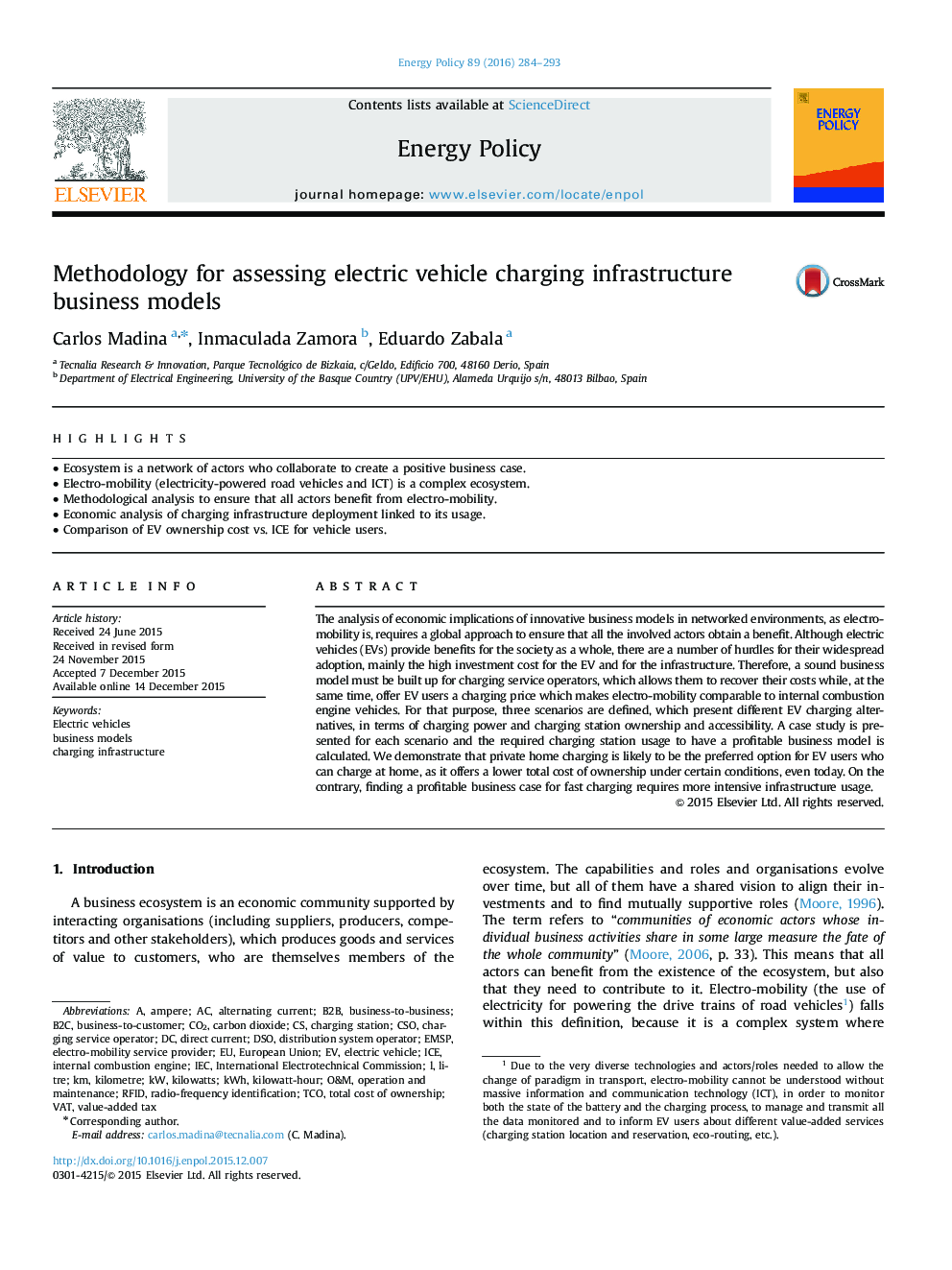| Article ID | Journal | Published Year | Pages | File Type |
|---|---|---|---|---|
| 7400053 | Energy Policy | 2016 | 10 Pages |
Abstract
The analysis of economic implications of innovative business models in networked environments, as electro-mobility is, requires a global approach to ensure that all the involved actors obtain a benefit. Although electric vehicles (EVs) provide benefits for the society as a whole, there are a number of hurdles for their widespread adoption, mainly the high investment cost for the EV and for the infrastructure. Therefore, a sound business model must be built up for charging service operators, which allows them to recover their costs while, at the same time, offer EV users a charging price which makes electro-mobility comparable to internal combustion engine vehicles. For that purpose, three scenarios are defined, which present different EV charging alternatives, in terms of charging power and charging station ownership and accessibility. A case study is presented for each scenario and the required charging station usage to have a profitable business model is calculated. We demonstrate that private home charging is likely to be the preferred option for EV users who can charge at home, as it offers a lower total cost of ownership under certain conditions, even today. On the contrary, finding a profitable business case for fast charging requires more intensive infrastructure usage.
Keywords
kilowattsDSOB2BB2CEMSPCSOTCOO&MampereEuropean UnionDistribution system operatorCharging stationAlternating currentDirect CurrentElectric VehicleElectric vehiclesCarbon dioxidecharging infrastructureRFIDRadio-frequency identificationoperation and maintenanceLitreValue-added taxVATtotal cost of ownershipBusiness modelsinternal combustion engineCO2Business-to-businessInternational Electrotechnical CommissionIECKilometrekWhkilowatt-hourIce
Related Topics
Physical Sciences and Engineering
Energy
Energy Engineering and Power Technology
Authors
Carlos Madina, Inmaculada Zamora, Eduardo Zabala,
